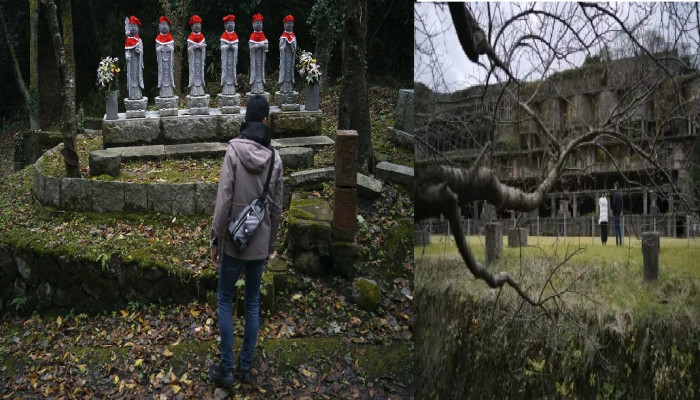Japan holds memorial for Sado Island gold mines workers amid South Korea’s boycott
- In Reports
- 01:22 PM, Nov 25, 2024
- Myind Staff
Japanese officials held a memorial service on Sunday to honour workers at the Sado Island Gold Mines but stopped short of apologising for Japan’s wartime use of forced Korean labour. The event highlighted lingering tensions between the two nations over historical grievances.
South Korea, citing unresolved disagreements with Japan, boycotted the ceremony, dealing a setback to recent efforts to strengthen bilateral ties. The absence of South Korean representatives, who were allocated over 20 seats, underscored the persistence of historical disputes despite progress in U.S.-led security cooperation.
Sado Island’s gold mines, designated as a UNESCO World Heritage Site in July after years of contention, hold a fraught legacy. Japan reluctantly acknowledged the mines’ wartime history, during which hundreds of Koreans were forced into gruelling labour, and pledged to hold annual memorials for all victims.
“As a local resident, I must say their absence is very disappointing after all the preparations we made,” said Sado Mayor Ryugo Watanabe. “I wish we could have held the memorial with South Korean attendees.”
South Korea’s Foreign Ministry announced plans to hold a separate memorial near the mines on Monday. It emphasised that this move reflects their "firm resolve not to compromise with Japan on historical issues," while also expressing a commitment to fostering mutually beneficial ties.
At Sunday’s ceremony, Japanese officials expressed gratitude to mine workers and mourned those who lost their lives. However, no apology was extended to Korean forced labourers. Akiko Ikuina, a parliamentary vice minister representing the Japanese government, acknowledged that many Koreans worked at the mines under wartime policies and endured “difficult work under dangerous and severe conditions.” Still, she avoided labelling the labour as forced or addressing Japan’s colonial rule over Korea.
Ikuina, linked to Japan’s ruling party faction previously led by the late former Prime Minister Shinzo Abe, has been a contentious figure in South Korea. Her August 2022 visit to Tokyo’s Yasukuni Shrine, a site commemorating 2.5 million war dead, including convicted war criminals, added to the strain. The shrine remains a potent symbol of Japan’s militarist past for its neighbours.
South Korea’s opposition to the Sado mines' World Heritage designation had initially stemmed from concerns that the contributions and suffering of Korean forced labourers were omitted. Despite these reservations, President Yoon Suk Yeol’s administration prioritised improved relations with Japan and eventually supported the designation, drawing domestic criticism for not securing stronger Japanese acknowledgement of Korea’s wartime labourers.
The Sado mines, operational for nearly 400 years until their closure in 1989, were once the world’s largest gold producer. During World War II, approximately 1,500 Koreans were mobilised to work in the mines, often under brutal conditions. Japan argues that all wartime compensation issues were resolved under the 1965 normalisation treaty, a stance South Korea disputes.
Critics in South Korea also voiced frustration over their government agreeing to fund the travel expenses of Korean victims’ families for the memorial, only for Japan to sidestep an apology.
The event underscores the deep divide between the two nations as they struggle to reconcile historical differences while navigating contemporary geopolitical challenges.







Comments